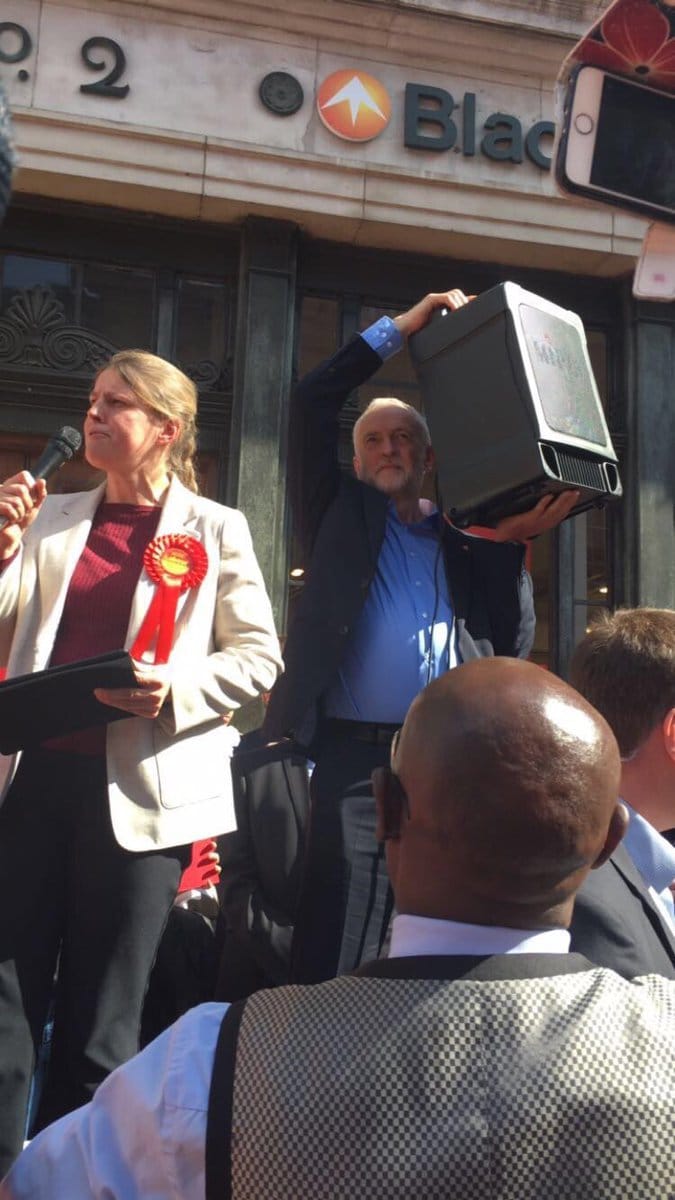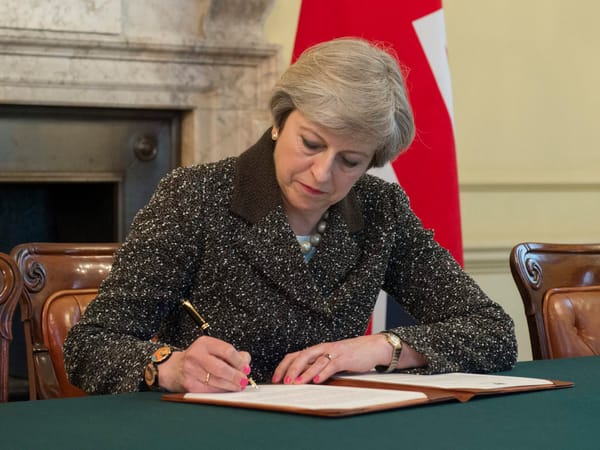Why I’m voting Labour
Abhijay Sood tells us all about why he's in love with labour

Soft on security, denying the deficit, and incapable of addressing concerns over immigration. These sound like the sort of accusations the Conservatives levelled at the last Labour government not too long ago, and yet after seven years in government, these are all areas in which the Conservative party have failed by their own metrics.
To anyone who even vaguely follows politics, the election on the 8th of June seems to have a forgone conclusion. Of course Theresa May will win a landslide. Of course Labour are going to haemorrhage seats. But should this really be the case?
Consider Brexit, currently being pursued with reckless abandon by the Conservatives.It seems they’re keen not only to close the door on Europe, but throw away the key. Not only are they threatening to withdraw us from the EU without an agreement, which could be extremely damaging to our economy (also this) but they’re pulling us out of European organisations we don’t even have to leave, such as the European Atomic Energy Community. This is just one case where the Tory line on Brexit is not only hurting our country’s research capacity, but attacking the sort of “red tape” that keeps people safe (forgive me, but I don’t have faith in a Conservative government regulating pollution in the air and sea, leave alone nuclear power plants). A Tory “Hard Brexit” is at odds with the values of diversity and openness we champion: values we hold not out of sentiment, but because we know fruitful results are borne out of cooperation. For all their lines about left-wingers and the economy, here the Conservatives are clearly putting populism ahead of economic credibility.
Consider that national debt is the highest it’s been in fifty years, the NHS is extremely vulnerable and underfunded, and that doctors (doctors for Christ’s sake!) have taken to the streets against Jeremy Hunt, who nonetheless has retained his position. Consider that the Education Maintenance Allowance has been scrapped, fees are set to rise indefinitely, that local government funding (which covers things like libraries, housing and adult social care) has been slashed. Consider that the party of small government and national security has passed legislation specifically to invade your privacy and cut tens of thousands of police jobs.
Recall the repeated failures to reduce immigration and control spending. Non-EU migration alone, which can be controlled by UK governments, exceeded the promised total amount [first, second, third].They’ve failed to keep their promises regarding the deficit,assuring us it would be eliminated by 2015, then 2017, then 2020 and now 2025. Whether you think these promises were sensible isn’t important here: they were made, and it is therefore entirely fair to criticise the government for failing to keep them.
Consider their own manifesto, which included a policy that would strip you down to your last £100,000 of assets after death [p64-65], an extremely regressive form of inheritance tax, should you require care while suffering with a degenerative disease (dubbed the“dementia tax”). Theresa may have halfheartedly backed down on this – the first time a party has broken a manifesto pledge before an election – but she’s made clear a similar policy might yet survive and don’t forget, the Conservatives thought this would be a sensible idea in the first place.
Labour have put forward a more optimistic manifesto. Unlike that of the Conservative party, it was fully costed at the point of publication. People can disagree about the specifics, but all the numbers are out there. In stark contrast with the Conservatives, Labour have pledged to restore the EMA, abolish tuition fees, recruit 10,000 police officers, invest £250bn in infrastructure, renationalise rail and mail to improve efficiency and lower consumer costs and undertake Brexit in a responsible manner that puts the economy first.
For this, Jeremy Corbyn’s party is being painted as radical, but why? None of them are out of step with the rest of Europe, and indeed many (abolishing tuition fees, renationalising Royal Mail) are merely a restoration to the balance that existed under that great socialist Margaret Thatcher. On the economic front, the Tories and tabloid press tell us that the Labour party cannot be trusted, and indeed they must be on shaky ground if their underlying ideas are only endorsed by two recent Nobel prizewinners and a diverse group of other high profile academics (who cares about experts these days, anyway?).
Those of you worried that, for example, taxes on the wealthy might drive them abroad should note that the Conservatives are a) driving junior doctors abroad at a time when the NHS is short-staffed and b) pursuing a hard Brexit which might be a lot more damaging to business than a few extra pennies of tax on the most successful. The small income tax increases suggested are very much in step with our European neighbours, and the suggested corporation tax would still be lower than that of most major European countries and the United States of America.
Throughout this campaign, the Conservatives have chosen to focus on personality instead of policy, pitting the “strong and stable” Theresa May against Corbyn’s “coalition of chaos,” but the British people,and certainly those reading, should be intelligent enough to see through that. Ideas have to come first - if you don’t believe me, ask yourself where David Cameron is right now. Even engaging with their argument about leadership reveals their weaknesses: a strong leader wouldn’t refuse to debate their opponents, hide from the public at carefully managed events, or abandon any policy that meets the slightest hint of resistance.
Trusting the alternative to the establishment is never easy, but ask yourself if, in the face of all the evidence presented here, you can support the Conservative party in good conscience. Rather than voting for a party that’s hinted it’ll bring back fox hunting and doesn’t seem to have education, healthcare or international cooperation high on its list of priorities, vote to challenge Theresa May’s vision on Brexit. Vote to challenge the notion that we need to build walls between ourselves and the rest of the world. Vote for a more inclusive, tolerant, and optimistic society. Vote Labour on the 8th of June.
If you’d like to get involved with the General Election campaign, contact laboursoc@imperial.ac.uk.








